Ladies in Pigs – Debbie Wilson Interview
We chat to Debbie Wilson, chairwoman of Ladies in Pigs, about their not-for-profit organisation that aims to educate people on the benefits of British farming and British pork.
Here she chats to us about high farming standards, the healthy benefits of pork and why encouraging young people and women into agriculture is hugely important the future of British farming.
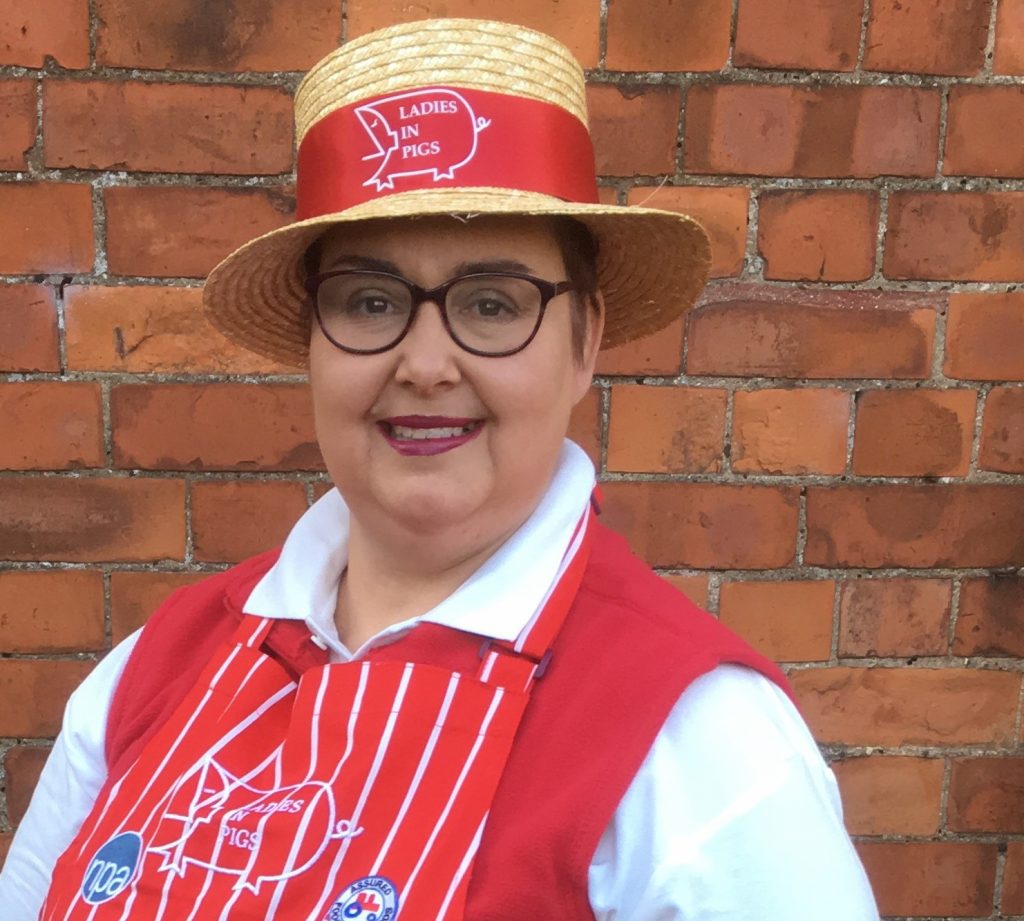
RH: Tell us how you started out working with pigs. Were you a farmer?
DW: I have been married to a pig farmer for 30 years and have always been involved on-farm and with the administrative side of things.
RH: Please tell us about Ladies in Pigs, what do you hope to achieve?
DW: Ladies in Pigs is a non-profit, sponsored organisation that has been going for 29 years; promoting and educating people about British Red Tractor pig farmers and their amazing pork and bacon.
Since beginning my tenure as Chairwoman, while still having a presence at shows and events across the country talking to visitors, we have put a greater emphasis on education at all ages about where food comes from, how it is produced and how it benefits a balanced diet. We aim to increase consumption of Red Tractor pork and bacon, develop knowledge and confidence in using it and increase the awareness of how brilliant British food is!
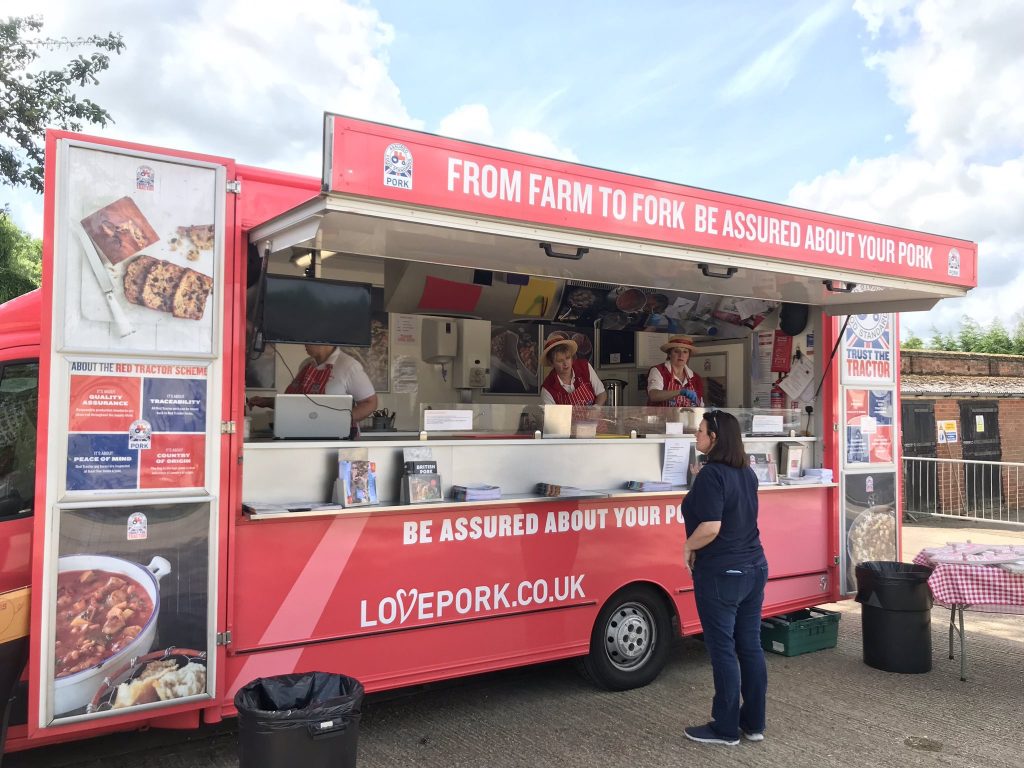
RH: Please tell us about some of the initiatives you are currently working on?
DW: One of the most recent developments has been to extend practical learning experiences and resources for young adults that are working towards their GCSEs and starting to think about their future. We are encouraging people to change their thinking about working in agriculture and that STEM subjects are an integral part of agriculture these days. We are also trying to inspire more young women that they can play an integral role in agriculture.
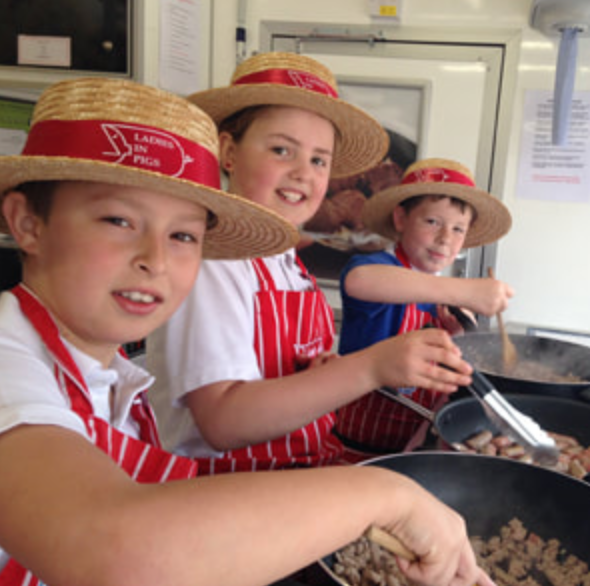
RH: Healthy eating, and encouraging pork at home and in schools is one of the many things you are promoting, how can we help more people to eat British Pork?
DW: We are constantly using social media to show the facts about the health benefits of eating pork and bacon as part of a balanced diet, and by working with children and young adults as well as our adult visitors. We try and inspire them with our recipes and free samples when we can visit shows and events.
I think it is essential to promote British pork that is raised to high welfare standards. It’s an amazing product, and by buying British, we are protecting the environment by not incurring air miles etc. and have assurance and traceability of the food we are eating.
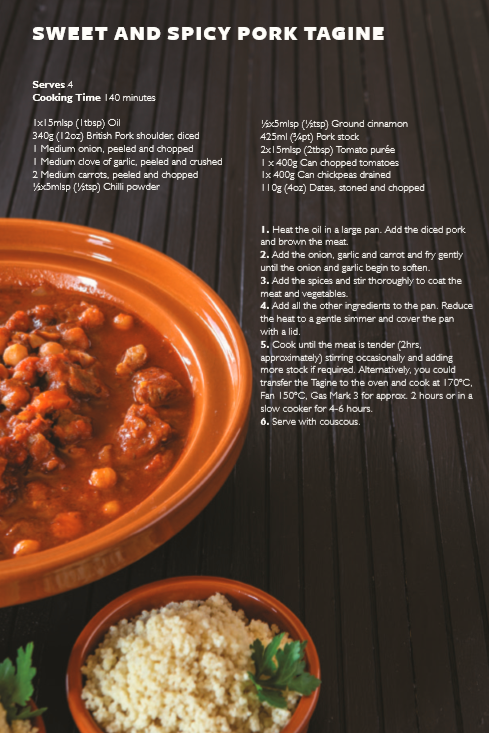
RH: So, what is your favourite pork recipe?
DW: I am partial to a good old hog roast, but my favourite Ladies in Pigs recipe is sweet and spicy pork tagine! It has all the food groups in one dish and is super tasty!
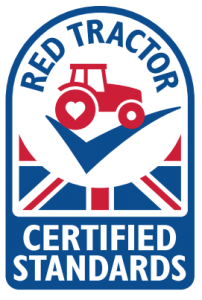
RH: How important is the British Pig and Pork industry in terms of economy, food standards and the future of UK farming?
DW: Supporting our British Pig and Pork Industry in the future is paramount; by having a healthy and vibrant industry, we support lots of allied industries, not only the pig farmers themselves. The standards are being adhered to, and as new tighter measures come into being, farmers uphold these and strive for the best in terms of welfare as well as good business models – these standards include environmental benefits as well. I think all elements of the farming industry work in such a way that we complement each other and provide consistently high standards of produce and welfare. I hope that we can be as resilient as ever through some challenging times, e.g. Brexit and new trade deals!
RH: We hear that you are working with schools and colleges to encourage young people into agriculture, why is that so important to Ladies in Pigs?
DW: That’s right, we have developed a model of practical workshops, firstly with food and nutrition students, (but hoping to widen this to other subjects) to inspire them to choose pork as their source of protein when developing recipes. As I mentioned earlier, we are trying to inspire young adults, both male and female, into careers in agriculture. As Ladies in Pigs, members are from a varied background within agriculture, and other industries, but who have a total belief in what we do. We aim to raise aspirations of what can be achieved and show them that there is a role for different transferable skills within the industry. Whether it’s with direct animal husbandry or through allied industries, such as nutrition, vets, or the many other roles that contribute to the production of food produced by British farmers.
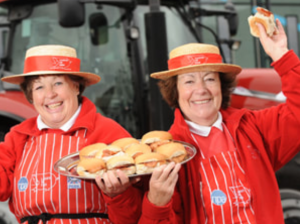
RH: Did you study farming at all? If so, what are the benefits or disadvantages?
DW: I have not personally studied farming at all, but through my husband and son, I have seen the quite different sides of further study in agriculture and how things have changed over time. I was a teacher before my role in Ladies in Pigs, so I am a firm believer that there is no “one size fits all” as far as further study is concerned. Whether it is learning on the job or formal education at whatever level, it’s good to learn and improve ourselves every day. Remember, every day’s a school day!
RH: Can anyone join Ladies in Pigs?
DW: Yes, we are always looking for new members. Anyone who is passionate about British food, farming, pigs or all three is welcomed with open arms. There are two bands of membership to suit everyone’s interests. If you want to be a member but cannot or do not want to be actively involved in the events we do; you can be a Friend of Ladies in Pigs at an annual cost of just £10. However, if you can come and actively take part in any of the 150+ events each year, it is £25 a year membership which includes voting rights, insurance at events, training, and some uniform.
As members work at our events as volunteers, being an active member of Ladies in Pigs is a great opportunity for university students etc. as it looks really good on their CV that they have worked as a volunteer.
We work hard, but we enjoy socialising at the end of a day and working hard as part of a team.
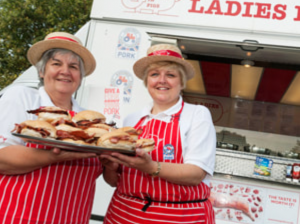
RH: Do you think there are enough women in the farming industry?
DW: There are many women in the farming industry, but there is always room for more. In my experience, there are women involved at the grassroots level on the farms, at boardroom level making strategic decisions and everywhere in between. Farming is changing and evolving, and this shows that it is an industry that welcomes both genders.
RH: Please tell us about your typical working day, what does being the Chairwoman of Ladies in Pigs entail?
DW: My role is to coordinate and organise what we do as an organisation throughout the year. From a strategic level, writing policies and talking to sponsors, the media or keeping our social media current; to completing all the administrative tasks that it takes to get a team, our mobile kitchen Rosie, and all of the ingredients to the events throughout the country.
I am very much involved in the days as well as much as I can be, and feel it is important to be part of the team on the ground, not just there in spirit. I am passionate about the tireless job our farmers do, so I want to be there working with people directly to celebrate that.
When not in lockdown, I can be found driving with colleagues to an event somewhere, whether a school or a show and cooking up a storm from our yearly recipe booklet. I will then catch up on some emails and correspondence before joining the team for dinner or driving back to base to get ready for the next event.
Each day is different, but it is about managing the events and ensuring that we are ready and raring to go when we spread the word about food and farming.
It is so rewarding when someone comments on how delicious the dish is, or that they have learnt something about Red Tractor and farming.

RH: What are your thoughts on sustainable farming?
DW: I feel that the farming industry is already working towards this. We need to continue to work towards sustainable farming for future generations and with new technology and systems to help provide the best welfare food while working to meet the different criteria for sustainable agriculture. As part of the standards that British Farmers comply with, they are working towards this end, and the assurance scheme also ensures that both farmers and consumers are getting the best possible outcome.
You can contact Ladies in Pigs here and follow them on Facebook here.
